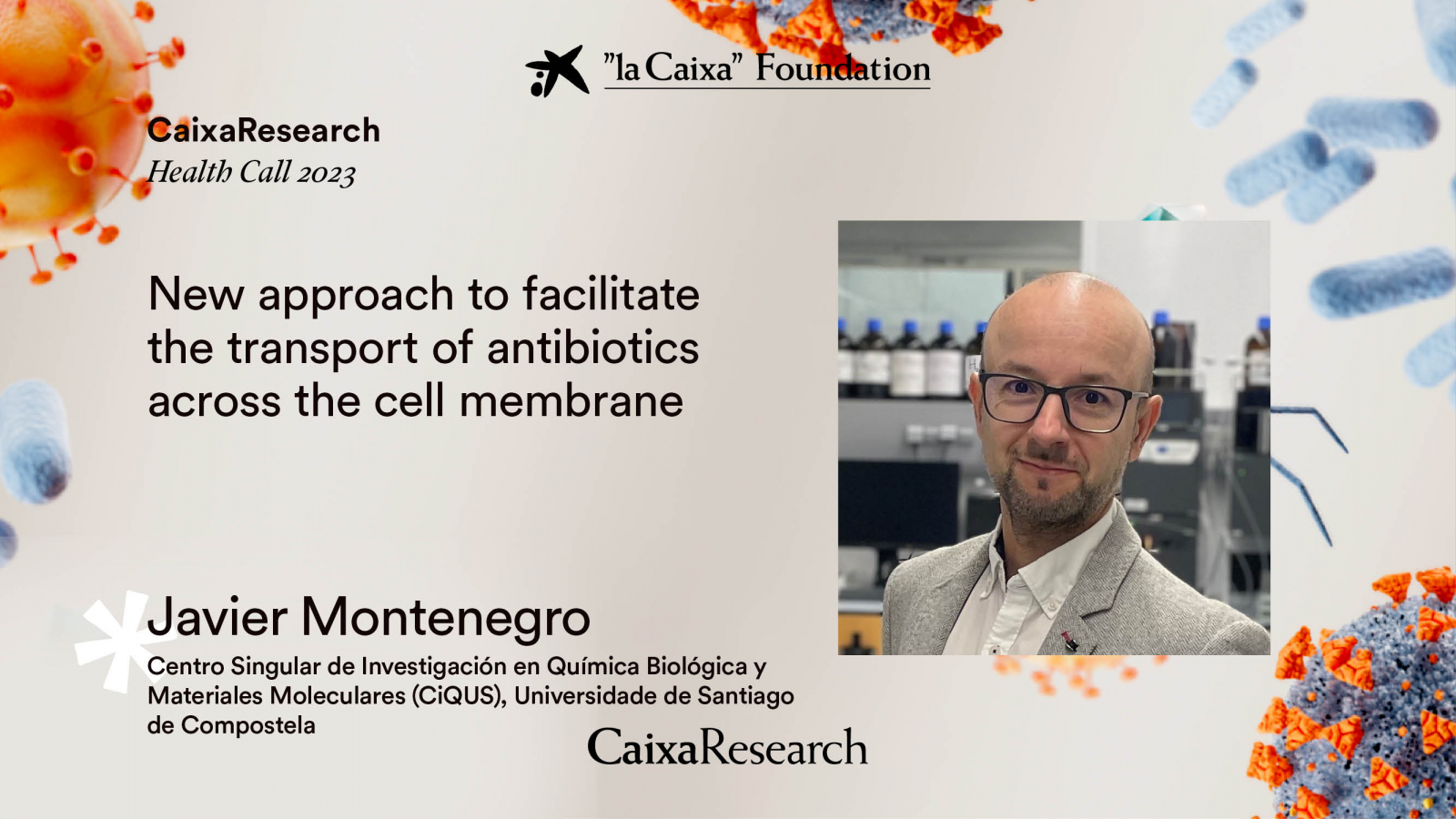 CaixaResearch
CaixaResearch
Bacterial resistance is becoming one of the major challenges for the future of human health. By the year 2050, the increase in multi-resistant microorganisms, coupled with the lack of new antibiotics, is predicted to cause the death of ten million people per year. One of the main barriers in developing new antibiotics is that many of the available molecules, although they have a promising bactericidal capacity, are unable to penetrate the bacteria's membrane. Despite existing strategies aimed at enhancing their transit through the bacterial membrane, these approaches face notable challenges in terms of both efficiency and stability.
Javier Montenegro, Principal Investigator at Center for Research in Biological Chemistry and Molecular Materials (CiQUS), has just been awarded a 1M € grant by Fundación "La Caixa" to explore a novel approach in addressing this current challenge. His team will focus on a recently discovered property of boron that enables the transport of hydrophilic molecules through cellular membranes. The knowledge generated by the project, which will be conducted in collaboration with microbiologist Mariana Pinho from the ITQB institute at the Universidade Nova de Lisboa, will pave the way for employing metal and boron clusters with antibiotic properties and for enhancing delivery through the bacterial membrane.
During the award ceremony held today in Barcelona, a total of 33 grants were announced for biomedical and health research projects to be performed in research centers, hospitals and universities in Spain and Portugal. These projects were selected in the CaixaResearch Health Research 2023 call, which aims to promote biomedical research of excellence with a high social impact in basic, clinical and translational research. Apart from Prof. Montenegro's project tackling bacterial resistance, three additional projects include participation from Universidade de Santiago de Compostela researchers among the selected ones.


